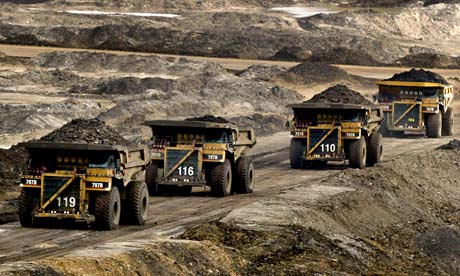Native elders to lead a spiritual gathering to heal land, air, water and all living forms harmed by world's largest industrial project
By Stephen Leahy
Native elders from all over North America will lead people past lakes of tailings wastewater and massive infrastructure of the tar sands industry along the Athabasca River in Fort McMurray, Alberta.
Organisers say the event, dubbed the Healing Walk, will be a spiritual gathering focused on healing the land, air, water and all living things harmed by the expansion of what is already the world's largest industrial project.
"This is a sacred walk because it invites us all to begin a process of healing–healing the land from violence, healing ourselves from our dependence on an economy based on that violence, and healing our deeply imperilled democracy," said Naomi Klein, writer and author of bestselling "The Shock Doctrine" on why she is participating.
By Vincent McDermott
Unlike last winter’s Idle No More protests--which featured road blocks, flash mobs and conventional protests--organizers say the Healing Walk is a spiritual exercise, where elders from several First Nations communities pray for the healing of land affected by oilsands development.
“We are not anti-oil development, but let’s do it in a sustainable way that’s going to be good for the environment,” said Chief Allan Adam of the Athabasca Chipewyan First Nation, which is based in Fort Chipewyan, downstream from oilsands development.
While Adam says he is not opposed to oilsands development--his community holds millions of dollars in industrial contracts with several major oil corporations and is the community's main source of employment--he spoke bluntly about the contempt for industry he says many aboriginal people have.
“The pace and scale of this development also bring with them destruction, risk and devastation,” he said. “Do we say yes to jobs while sacrificing our ability to pass on our culture to the next generation? Are we OK to accept a pay cheque while we watch our land and water being turned toxic, preventing us from hunting and fishing? We will not be forced to sacrifice our culture and way of life.”
Below: "Mining trucks carry loads of oil-laden sand in Alberta, Canada." (Jeff Mcintosh/AP)


No comments:
Post a Comment